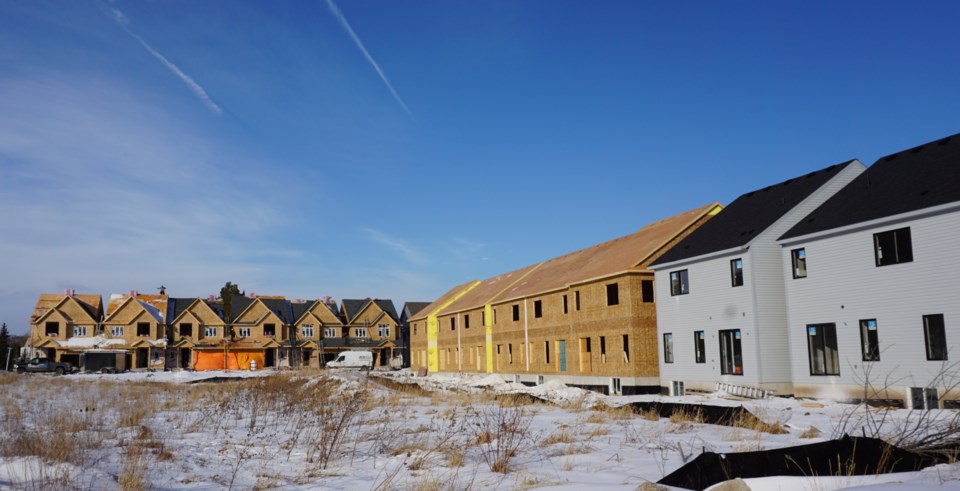As further COVID-19 construction restrictions were rolled out from the provincial government this week, Robert Voigt, president of the Georgian Triangle Development Institute (GTDI) says the local development industry has been extensively disturbed, and many projects have been completely halted.
“Everything from engineering and design, to public meetings, to construction site workplace safety, to home sales; they have all been affected,” Voigt says.
Earlier this week the provincial government increased restrictions on the construction industry to allow only active sites on the essential businesses list to continue operating.
According to Voigt, the GTDI, which represents the development industry in the Southern Georgian Bay, is currently working to stay connected and provide industry-specific information to its members, adding that so far, they are seeing significant and broad impacts on the industry.
“We are monitoring the industry for changes and coordinating between our membership and municipal staff representatives in planning/development and approvals in our region,” Voigt says. “Pressing issues of service provision, attainable housing, and economic development must be looked at with new perspectives, and they all relate to the work of GTDI; for example, the housing crisis our communities were facing before COVID-19 could likely become worse; and much-needed municipal infrastructure projects need to continue to move forward.”
Jim Torrance, president of the Blue Mountain Ratepayers Association, echos Voigt’s request for a new perspective to be taken post-COVID-19, saying that both the county and the municipality will need to look for greater efficiencies when it comes to area development.
“I think the reality is that once we get through this immediate crisis period, there is going to have to be a good hard look at how business is conducted for everybody,” Torrance says. “There are planning activities that happen at the town level and at the county level. That would seem to be one area where there is likely overlap and redundancies. And, I think in the post-COVID-19 world, there is even less capability to support redundant effort.”
Voigt adds that the local development industry is highly dependent on effective collaboration between these governing bodies.
“This is why we have been in discussions with MP Terry Dowdall, and MPP Jim Wilson, as well as many local elected officials and staff representatives,” Voigt says. “I am happy to say that to a person, these public representatives have been willing to listen, are forthright, and ready to work collaboratively with GTDI to find a path through this public health crisis that best serves the region.”
Voigt says that the GTDI recently launched a short survey for anyone within, or related to the development industry to help gather information to support its lobbying efforts.
“This survey will help us gather insights and support our ongoing work with the local staff and elected officials, MPPs, and MP that fall within the GTDI’s boundaries,” Voigt adds. The GTDI coverage area includes Meaford, the Town of the Blue Mountains, Collingwood, Wasaga Beach, Clearview, and including Simcoe and Grey County representatives.
In terms of the long-term impacts on the development industry, Voigt says it is difficult to fully grasp everything that will be impacted at this time. However, GTDI is, “looking at a variety of areas that are likely to be negatively affected, including: exacerbated attainable housing crisis; workforce capacity challenges; backlog of needed municipal infrastructure projects; ability of the development industry and government to work together to provide needed jobs, community amenities/services, and economic development in the region.”
“Within our area of influence we are committed to reducing the immediate impacts on peoples’ businesses, workplaces, and homes, and also moving forward strategically for the longer-term,” he adds.



